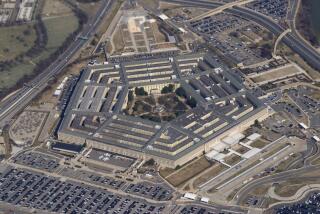Four questions about the NSA spying controversy
In recent days, disclosures of electronic surveillance by the U.S. National Security Agency, including allegations that it spied on foreign leaders, have threatened to cause significant damage to the United States’ relations with some of its closest allies. Here are answers to some basic questions about the uproar.
How did the NSA controversy start?
On June 5 and 6, the Washington Post and Britain’s Guardian published highly classified documents revealing two genuinely surprising secrets. One showed that the U.S. National Security Agency had been obtaining and storing the calling records of every American under the supervision of a secret intelligence court, despite denials by senior officials that this was happening. The other detailed how the NSA had been obtaining the content of communications directly from U.S. Internet companies, including Google, Facebook and Microsoft. The latter program, known as PRISM, is aimed at foreigners, but it sweeps in the data of Americans.
Edward Snowden, who had worked at an NSA facility in Hawaii, revealed himself as the leaker, saying he objected to what he felt was improper surveillance. Then just 29 years old, he used his broad access to NSA systems to download and remove as many as 50,000 documents, most of which have not been revealed. He is now in Moscow.
What is the NSA?
Born in 1952 as a successor to World War II code-breaking agencies, the NSA is part of the military, though many civilians work there. The mandate of the NSA, headquartered at Ft. Meade, Md., is to collect “signals intelligence” – communications that travel electronically. Its director, Gen. Keith Alexander, recently said the agency employs “960 PhDs, over 4,000 computer scientists, over a thousand mathematicians.”
The agency has rapidly expanded its capability to wiretap foreign leaders, intercept global Internet traffic, defend government networks against cyber attacks and track the locations of adversaries. It has developed into the single most important source of intelligence for the president. It helped the CIA find Osama bin Laden and kill other Al Qaeda operatives with drone strikes. The NSA is a foreign intelligence agency, but because communications are global and intermingled, it inevitably sweeps in the private data of Americans. U.S. data are subject to special handling, but critics question whether the privacy rules are sufficient.
PHOTOS: 2013’s memorable political moments
What other secrets has Snowden revealed?
Mike Morell, former CIA deputy director, called Snowden’s leaks “the most serious compromise of classified information in the history of the U.S. intelligence community.” The worst breach, Morell said, was the disclosure of the “black budget,” the once-secret accounting of U.S. intelligence spending. Other Snowden disclosures have fueled dozens of news stories that have given the world a new understanding of the enormous scope of NSA spying – from vacuuming up Internet traffic to eavesdropping on specific foreign politicians and missions. An audit showed that NSA had on occasion exceeded its authority and mishandled data on U.S. citizens by mistake, although its error rate is very low. Unlike the spying scandals of the 1960s and ‘70s, no evidence has emerged of NSA using its considerable power for political or other improper ends, aside from a handful of cases of individual employees caught spying on love interests.
What’s been the fallout, and where is this headed?
The drumbeat of disclosures has put the U.S. intelligence community on the defensive, and there are signs that key politicians, including President Obama, are contemplating reining in the agency. Initially, Obama and key members of Congress defended the NSA over the collection of U.S. phone records. But Obama and some of the NSA’s defenders in Congress have reacted much differently to more recent revelations, including that the agency had been tapping the phones of allied leaders, including German Chancellor Angela Merkel. U.S. officials said Obama didn’t know about some of the surveillance and has ordered a review, while key lawmakers have condemned it as unwise. Intelligence veterans have reacted with umbrage, saying that, for example, seeking to understand “leadership intentions” of friends and foes is a basic tenet of their craft. But in the White House, a new mantra seems to be emerging: Just because the NSA can do something doesn’t mean it should.
ALSO:
‘The end of the British breakfast as we know it’ -- Horrors!
Teen pregnancy declining, but 7.3 million a year still give birth
Russia’s Putin beats Obama for top spot in Forbes’ most powerful
More to Read
Start your day right
Sign up for Essential California for news, features and recommendations from the L.A. Times and beyond in your inbox six days a week.
You may occasionally receive promotional content from the Los Angeles Times.







